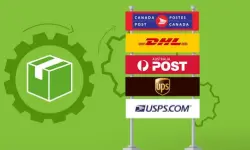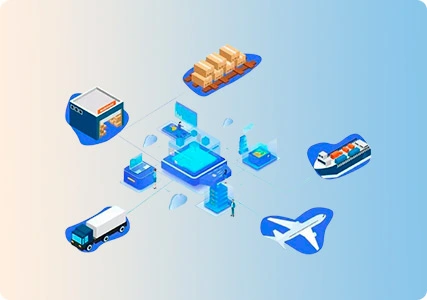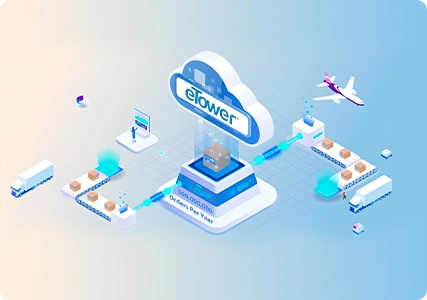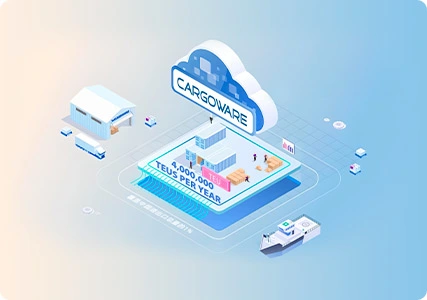Multi-carrier shipping systems help retailers, manufacturers, and logistics providers ship millions of parcels worldwide at the lowest possible cost.
The goal of multi-carrier shipping systems software is to help organizations move large volumes of parcels quickly while reducing shipping costs. It focuses on simplifying the complexity and operational stress that global parcel shipping places on organizations by enabling you to easily and quickly join, leverage, and optimize multiple carrier services including regional and last mile providers while generating the data and analytics needed to identify opportunities to increase savings and improve on-time delivery performance.
Some multi carrier shipping systems are better than others, but each quality solution will (at a minimum) offer the following features and capabilities.
Cloud-based technology
A large library of carrier integrations
Open architecture
Seamless integration with other supply chain and enterprise systems
Cross-border express shipment fulfillment
Control tower visibility and delivery event management
Business intelligence and data analytics
State-of-the-art security
100% uptime
Multi carrier shipping systems API
Multi carrier shipping systems API is a collection of programming technologies that allows a user to build customized carrier manifesting solutions for ERP, WMS, E-Commerce, Marketplace, or any internal customer systems.
Multi carrier shipping systems API enables integration between shipping carriers and organizations’ business systems. It is a Single API to provide seamless integration with hundreds of carriers around the world. Designed for any type of business with small to very high volume shippers.
Multi carrier shipping systems API is available both On-Premise & Cloud
Benefits of multi carrier cross-border logistics shipping systems technology
Multi-carrier cross-border logistics technology can help retailers, manufacturers and logistics service providers to deliver millions of parcels worldwide at the lowest possible cost. The right multi-carrier cross-border logistics technology can also help organizations to.
Integrate with leading ERP, WMS and TMS solutions to seamlessly receive order information and communicate shipment status.
Quickly add new carriers as parcel shipping needs evolve.
Scale shipments quickly and at low cost with minimal impact on internal IT departments
Receive proactive alerts about delivery issues and turn end-to-end delivery event visibility into proactive issue resolution based on custom business rules
Streamline Operations. Integrate common shipping carrier functionality into your business workflow.
Save time by automating common processes like rate and service selection, generating labels, and exchanging data between information sources.
Conforms to industry standards and is compatible with developer tools.
Gives organizations greater flexibility by allowing programmers to integrate shipping functionality directly into your business systems.
All major carriers (small parcel, LTL, TL and freight forwards) services are integrated with a single API call.

Let's take a quick look at what makes multi-carrier shipping systems technology unique among its closest supply chain-related products.
The cross-border transport management system (TMS) and the multi-carrier cross-border logistics technology difference
To really differentiate multi-carrier shipping systems from other transport solutions, Multi-Carrier Cross Border Logistics Technology (at its core) is about cross-border parcel logistics. It provides shippers with the technical infrastructure needed to perfect parcel cross-border logistics multi-carrier shipping systems workflows and to utilize multiple parcel logistics options across a wide range of regions to speed up deliveries while keeping costs low for businesses. This extends the delivery to reach and connects shippers to customers on a global scale. It can also save money as shippers can compare the economic and time-related costs of parcel logistics before items leave the warehouse. Shippers can choose the best option for their company, whether it is the cheapest, fastest, or best quality service.
In contrast, TMS (at its core) is all about freight. TMS solutions are developed for planning shipments and include functions such as freight rating, load planning and inbound transportation, to name just a few. Typically, shippers see TMS as the solution to their shipping problems, but with e-commerce orders increasing every year, TMS-only carriers may suffer. TMS solutions "over-solve" parcel shipping challenges and can lead to technical overruns for shippers and over-complicate the most critical tasks at hand The TMS solution can also lead to technical overheads for shippers and overcomplicate most critical tasks at hand.
Choosing the right transport technology
Therefore, before a company embarks on implementing any type of logistics technology, it is important to first analyze the volume of traffic by mode and then consider whether a traditional TMS, a multi-carrier transport system or both provide the necessary functionality. It's clear: one option doesn't fit all. But for those companies whose parcels make up the largest part of their traffic, supporting multi-carrier cross-border logistics technology is the obvious choice. Multi-carrier transport solutions will handle this cumbersome process automatically.
Get the technology you need to operate efficiently
Interested in learning more about how multi-carrier shipping systems can help your organization take control of parcel shipments? Find out why you'll love eTower.









